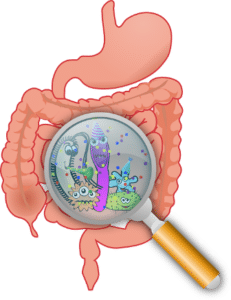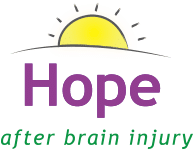For many patients, a concussion or traumatic brain injury can mean the future health of the gut-brain connection may be at risk. Recent studies over the past few years have also linked the gut-brain axis to autism, depression, anxiety, and various autoimmune conditions. Understanding how our future cognitive health connects with our gut pathology after a traumatic brain injury may be a key to preventing or slowing the risk of future cognitive decline.
Studies have shown that patients could be prone to long term intestinal dysfunction caused by a traumatic brain injury. The gut damage may leave patients vulnerable to excess gut bacteria, increased risk of infections, and ongoing inflammation. Unfortunately, some survivors of traumatic brain injury may also have an increased risk of dementia or Alzheimer’s disease. Reducing inflammation in the body and lowering our risk of intestinal permeability after brain injury may be as straightforward as changing our diet.
 Although science has known about the gut-brain connection for years, advanced research of the human microbiome continues in several major universities and independent research centers. The topic of the gut-brain connections influence on health has rapidly made its way into major headlines and has become a leading focus in global health conferences throughout many countries.
Although science has known about the gut-brain connection for years, advanced research of the human microbiome continues in several major universities and independent research centers. The topic of the gut-brain connections influence on health has rapidly made its way into major headlines and has become a leading focus in global health conferences throughout many countries.
In the past few years, the subject of healing the gut-brain connection appears to bridge between functional health physicians and traditional medicine. A cohesive approach to further understanding the body’s ability to fight disease, injury, and cognitive decline could improve healing and longevity for millions of patients worldwide.
At-risk patients should understand how essential diet changes aimed at fighting inflammation and healing intestinal health could significantly improve brain health. In some existing cases of mild cognitive impairment, diet, and exercise changes may prevent further cognitive decline. Learning the importance of improving our gut health should be the alarm call everyone needs to hear.
Diet changes can be a game of trial and error. Even though our brain needs glucose, cutting sugar, and unhealthy carbohydrates from our diet can be the healthiest place to start. Our blood sugar has a direct influence on how our brain functions; adverse complications can occur when we consume excessive amounts of glucose from processed foods, sugar, or high glycemic carbohydrates.
Once we remove any offending foods from our diet, sugar and carb cravings are typically short term. Keeping a detailed food diary would help remind us of our body’s reaction to certain foods. The documentation habit can also help us note improvements in our gut, brain, and overall physical health.
With all the medications, supplements, various diet and treatment options aimed at restoring our gut health, it can be confusing to patients in general, especially for those who have suffered a mild traumatic brain injury. Just as no two brain injuries are alike, neither are the microbiome in our gut. Finding the best treatment to create a balanced intestinal environment may take a bit of patience and perseverance. Working with the right doctor who is knowledgeable about the gut-brain connection and individual patient risk factors will help us to achieve our health goals.

Leave A Comment
You must be logged in to post a comment.